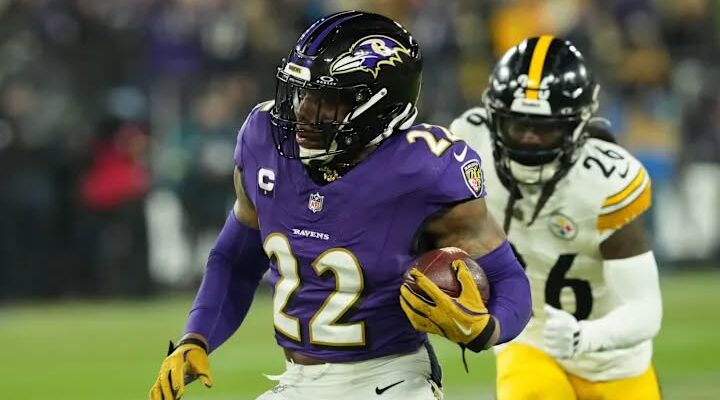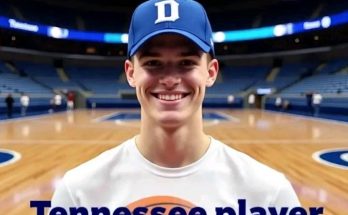The Baltimore Ravens consistently defy conventional NFL wisdom, operating with a strategic brilliance that allows them to impress both fans and analysts with what appear to be an endless string of bargain deals. In a league increasingly defined by astronomical contracts and salary cap constraints, the Ravens, under General Manager Eric DeCosta, have mastered the art of maximizing value, turning smart spending into serious Super Bowl potential. Their roster isn’t just stacked with Pro Bowlers; many of these top contributors are on some of the best value contracts in the league, making them a case study in front-office excellence.
This prowess isn’t accidental; it’s the result of a multi-faceted approach to roster building and cap management that prioritizes several key pillars:
1. Elite Drafting and Player Development:
The cornerstone of Baltimore’s value strategy lies in their consistent ability to draft and develop homegrown talent. By hitting on a high percentage of their draft picks, particularly in the early rounds, they secure elite players on cost-controlled rookie contracts. This provides an invaluable talent pipeline that is far cheaper than acquiring equivalent players in free agency.
- Kyle Hamilton (Safety): A shining example. Hamilton, a 2022 first-round pick, has rapidly ascended to become one of the NFL’s premier safeties, earning back-to-back All-Pro selections. Yet, he’s still playing on his rookie deal, representing an absurdly good value at his position. His cap hit for 2025 and 2026 is a fraction of what a player of his caliber would command on the open market.
- Tyler Linderbaum (Center): Also a 2022 first-rounder, Linderbaum has established himself as one of the best centers in the league, earning multiple Pro Bowl nods. Like Hamilton, his rookie contract provides elite production at a significantly undervalued price. While both are due for extensions soon, the Ravens have maximized their cost-controlled years.
- Zay Flowers (Wide Receiver): The 2023 first-round pick quickly became Lamar Jackson’s top target, showcasing explosive playmaking ability. He’s on a rookie deal through 2027, giving the Ravens four years of a dynamic receiving threat at a team-friendly cost.
- Nate Wiggins (Cornerback): The 2024 first-round pick is another example of investing early in premium positions to secure talent on cheap deals.
DeCosta himself has articulated this strategy, emphasizing that in a salary cap league, you simply “can’t build a team with veterans at every position.” The focus is on finding “good, young, inexpensive talent” through the draft and developing them.
2. Strategic Contract Management and Proactive Extensions:
The Ravens are renowned for their discipline in free agency, often avoiding bidding wars for high-priced external veterans. Instead, they prioritize extending their own homegrown stars before they hit the open market and their value truly skyrockets.
- Rashod Bateman (Wide Receiver): His recent three-year, $36.75 million extension (May 2025), which effectively extends his control for five years at an average of $9.5 million per season, is a prime example. As analysts noted, this is “equivalent to that of a rookie contract all over again” for a player who has shown immense potential and impact in the Ravens’ offense. By extending him with two years still left on his prior deal, the Ravens locked in a significant talent at a bargain rate relative to future market prices.
- Roquan Smith (Inside Linebacker): While Smith received a large contract (5 years, $100 million in 2023), the Ravens traded for him and then swiftly extended him, securing an All-Pro talent at the heart of their defense. The value was in making a critical mid-season acquisition and then immediately solidifying that position long-term.
- Nnamdi Madubuike (Defensive Tackle): After a breakout 2024 season, Madubuike signed a four-year, $98 million extension in 2024. While a substantial deal, it was crucial to retain a dominant pass-rushing interior lineman, a premium position, and the Ravens made sure to lock him down, preventing him from hitting the open market where bidding could have driven the price even higher.
This approach of “racing against swelling markets, not against the expiration dates of his player’s contracts,” as one analyst put it, allows the Ravens to retain their core talent without financial panic.
3. Opportunistic Veteran Acquisitions (The “Lamar Discount”):
When the Ravens do venture into the veteran free agency market, they do so with extreme selectivity and often find players who prioritize winning over top dollar. This is where the concept of the “Lamar discount” often comes into play.
- Derrick Henry (Running Back): Signed for two years, $16 million in 2024 (and extended for two years, $30 million in 2025, but the initial signing was the bargain). Henry reportedly turned down more money from other teams to join the Ravens, driven by his desire to win a Super Bowl and play with Lamar Jackson. His 2024 season, where he rushed for nearly 2,000 yards, made his initial $8 million APY a remarkable bargain. His recent extension, while significant, is still seen as market-appropriate for a player who continues to defy age, showcasing the Ravens’ willingness to reward production while still getting value.
- Jaire Alexander (Cornerback): His one-year, $6 million deal (with $4 million base and $2 million incentives) signed in June 2025 is a prime example. Alexander, an elite cornerback with two Pro Bowls, reportedly took less money to reunite with Lamar Jackson and chase a Super Bowl in Baltimore. This low-risk, high-reward signing could yield All-Pro production for a fraction of what he might command fully healthy.
- DeAndre Hopkins (Wide Receiver): Signed in 2024 for one year, $5 million (max $6 million), Hopkins provided invaluable veteran leadership and reliable pass-catching at an “incredibly discounted rate.” This was a steal for a receiver of his pedigree.
- Chidobe Awuzie (Cornerback): A capable veteran cornerback signed for a modest deal in 2025, providing valuable depth and experience in the secondary.
- Ronnie Stanley (Left Tackle): While he’s on a significant contract (3 years, $60 million from 2025-2027), Stanley himself stated he gave the Ravens “the best bargain” he would offer any other team, prioritizing staying with the franchise that drafted him. This loyalty helps keep prices relatively in check for a critical position.
4. Strong Team Culture and Super Bowl Aspirations:
Players are increasingly valuing team culture, coaching stability, and the legitimate chance to win a Super Bowl. The Ravens consistently offer all three. This makes them an attractive destination for veterans willing to take slightly less money for a greater chance at a championship. Lamar Jackson’s presence and reputation as a leader also plays a significant role in recruiting. As one report put it, the Ravens “get the ‘Lamar discount’ on Jaire Alexander.”
The cumulative effect of these “bargain deals” is profound:
- Sustained Competitiveness: The Ravens consistently field a highly competitive team year after year without crippling their salary cap.
- Financial Flexibility: They maintain enough cap space to address emerging needs, sign key extensions, and make opportunistic in-season moves.
- Deep Roster: They can afford to carry more talent and depth across the roster, which is crucial for navigating the rigors of an NFL season.
- Super Bowl Contention: By maximizing value at almost every position, they build a roster capable of competing for a Super Bowl annually.
In an NFL where financial mismanagement can quickly derail promising teams, the Baltimore Ravens stand out as a model of fiscal responsibility combined with on-field excellence. Their ability to consistently impress with bargain deals is a testament to the shrewd management of Eric DeCosta and his team, proving that you don’t always need to break the bank to build a championship contender.



